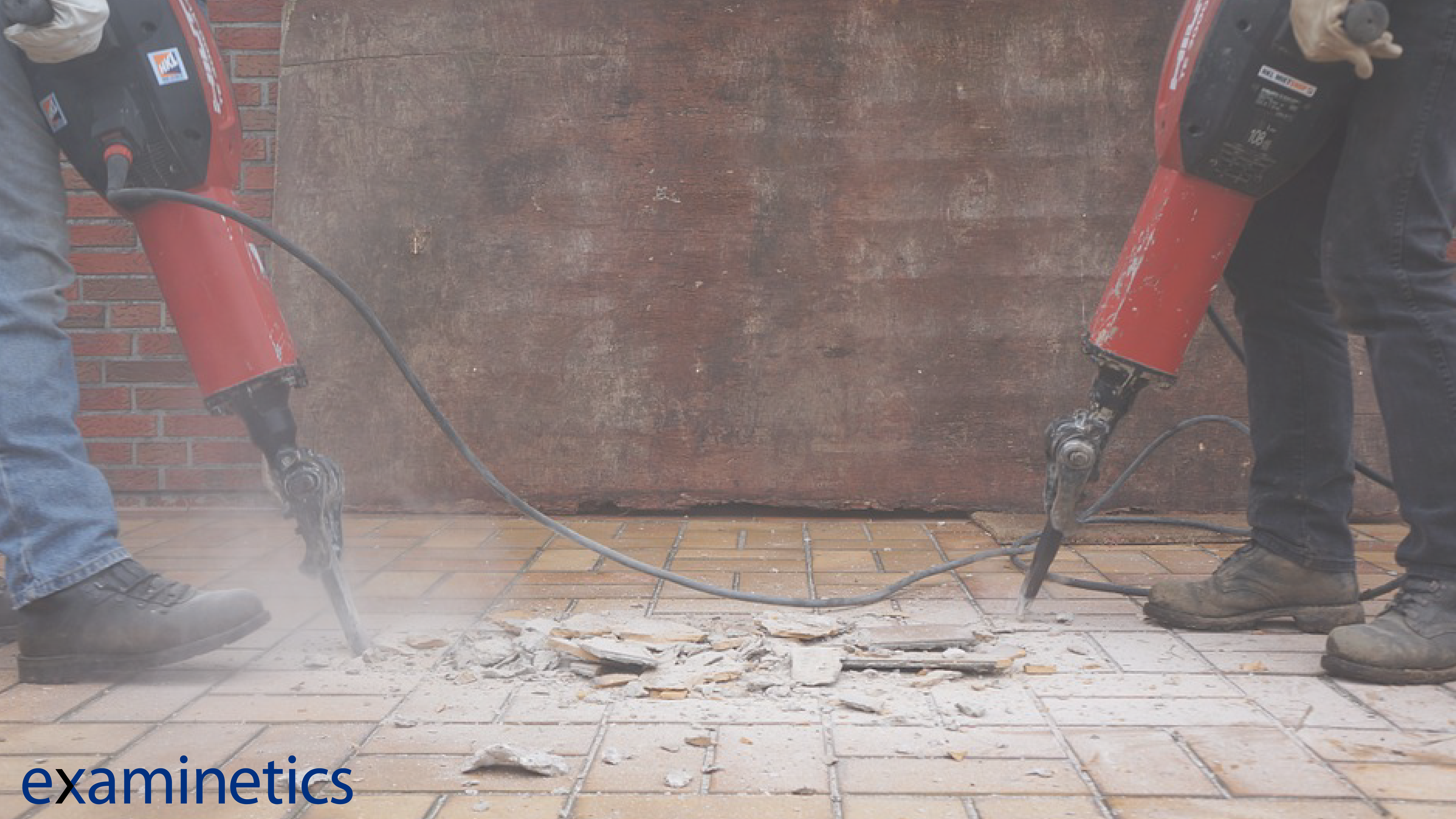In late 2017, OSHA began rolling out the new respirable crystalline silica standard, which is to be fully implemented by mid-2021.
While meant for guidance and protection, the silica standard has also created uncertainty and confusion for those who need it the most: employers, employees and medical professionals.
Seeing firsthand the complexity of the silica standard, Chief Medical Officer Dr. Kent Peterson outline several specific challenges safety managers and occupational health professionals frequently face.
Take a look at seven challenges implementing OSHA's current silica standard and how Examinetics' extensive experience and services provide solutions to help you navigate the waters.
1. Understanding of silica regulations
One of the main points of confusion is the significant differences between the old and new silica standard. Areas of confusion include:
· Which employees need silica medical exam (e.g., part-time contractors)
· The information needed for the exam and the specific tests to be performed
· Specific examination results the employer may and may not receive
· Chest x-ray, B-reading and TB skin test interpretation
· Appropriate employee follow-up, especially with designated specialists
· Payment for follow-up exams
To understand and interpret the new standard, employers should seek the guidance of experts who have experience in silica medical exams and respiratory protection. Medical experts at Examinetics provide professional assistance and expert insights to navigate the new rules.
2. Employee refuses any part of the exam
While a silica medical examination must be offered, employees can choose not to have the exam or any component of it: medical history, pulmonary function test, chest x-ray with B-read, physical exam, TB skin or referral to a broad-certified specialist for follow-up.
Although employees can refuse any OSHA-mandated test, it is important to note that employers have the option to make medical exams a mandatory "condition of employment."
When looking for a medical partner for silica exams, seek a company that aims to teach workers the value of each component of the silica medical exam and the benefits to their health.
3. Training of licensed health care professionals
Given the confusion surrounding the new silica standard, it is difficult to find competent and knowledgeable silica examiners. Unfortunately, not all medical examiners understand OSHA regulations and fully comprehend their role in the process. In fact, many simply review history, perform physicals and complete forms. Examiners need better guidance on potential hazards, what to search for in work and medical history, how to focus their physical exams and knowledge of the required tests.
It is the responsibility of the employer to ensure the proper training of health care professionals conducting exams. Examinetics' Chief Medical Officer, Kent Peterson, MD, FACOEM, FACPM, is currently constructing web-based examiner silica-training that can provide for one hour of CME (Continuing Medical Education) credit. The module will prepare examiners on:
· The adverse effects of silica
· The questions to address on the medical history
· Areas of focus on physical exams
· How to advise workers about results
· The need for specialist referral
· Advising employees regarding the release of medical information to the employer
4. Assistance finding qualified medical specialists
After the silica medical examination, employers must "make available within 30 days an evaluation by a board-certified specialist in pulmonary disease or occupational medicine" for employees with work-related silica health issues.
Employers should work with a partner who can assist in finding suitable specialists when needed. Examinetics offers guidance to employers when fining specialists in pulmonary disease and occupational medicine.
5. Employee does not authorize release of information to employer
Only with a signed release can employers access the critical employee information from the initial medical examinations. Information includes recommended limitations on employee exposure to respirable crystalline silica and a statement directing an examination by a board-certified specialist in pulmonary disease or occupational medicine for the employee.
Look for a partner that guides workers to understand the best options for their health. Health professionals should discuss with employees the implications of not authorizing their employer to receive vital information.
6. B-Reader licensing
There is confusion about the credentialing needed for B-Readers to review silica x-rays. OSHA has not provided guidance on whether B-Readers must hold licenses in each state they conduct B-Reads. Some B-Readers are attempting to distinguish comprehensive "clinical review" from occupational "pneumoconiosis consultations."
Examinetics' B-Readers are NIOSH-Certified and have performed thousands of evaluations. We have a panel of additional certified B-Readers who can provide further insight on any case at the request of an employer or to meet special requirements of the Mine Safety and Health Administration (MSHA).
7. Confusion about what medical information the employer may receive
The employer usually receives medical exam results relevant to occupational exposures. However, the silica standard excludes employers from receiving:
· Medical test results
· Medical conditions that would place employees at increased risk from silica exposure
· Medical conditions that require further evaluation or treatment
Only with employee authorization may an employer receive a statement that a board-certified specialist in pulmonology disease or occupational medicine should examine the employee.
The employer must understand how significantly the silica rules differ from other OSHA standards.
Conclusion:
If you are struggling to understand OSHA's silica standard, look for an experienced and knowledgeable compliance partner with the insight to keep your workforce productive, safe and healthy. With over 2,000 silica exams conducted across the U.S., Examinetics has broad experience in this area. Check out our services to learn more about silica health screenings and other compliance and wellness services.
---
This is business-to-business information intended for EHS (environmental health and safety) professionals and not intended for the final consumer. Companies should check the local regulatory status of any claim according to their individual needs, requirements and intended use.
